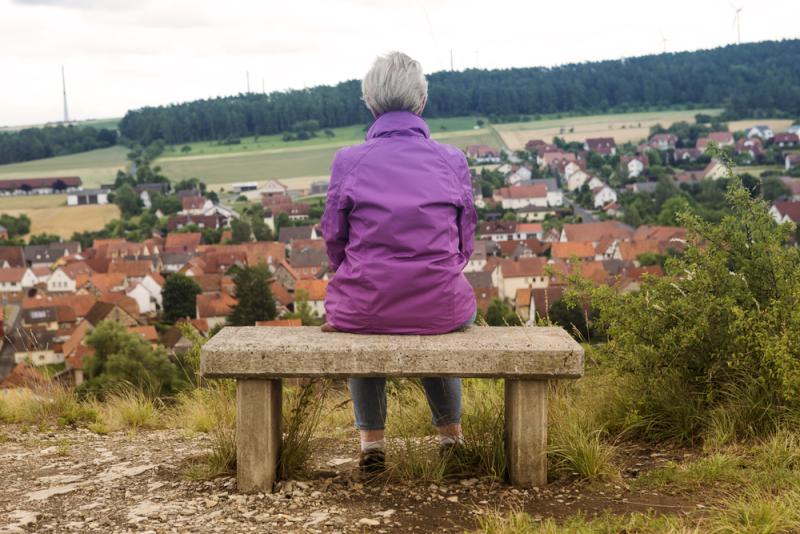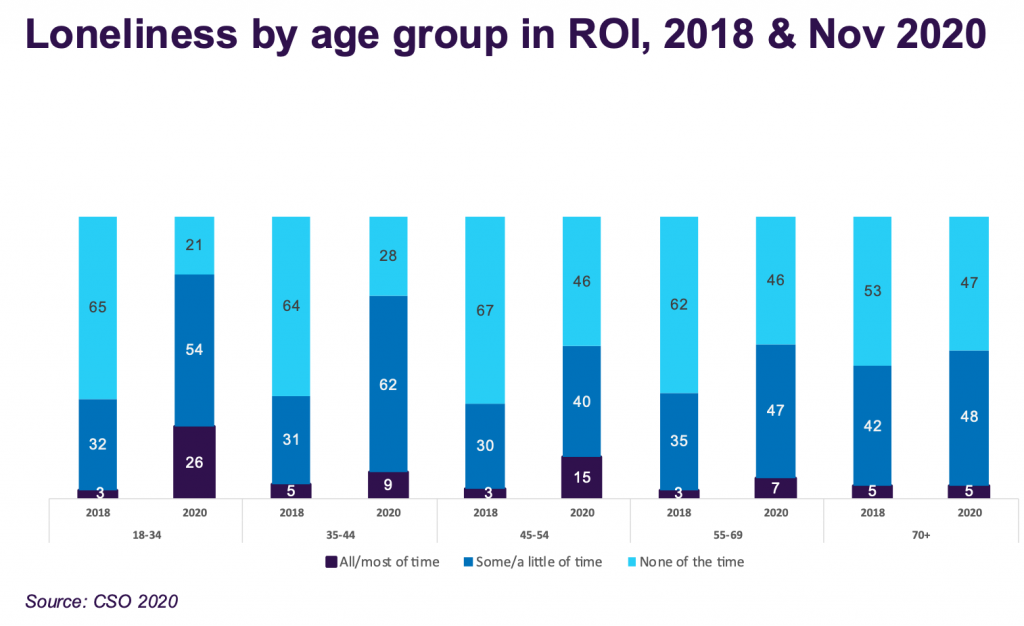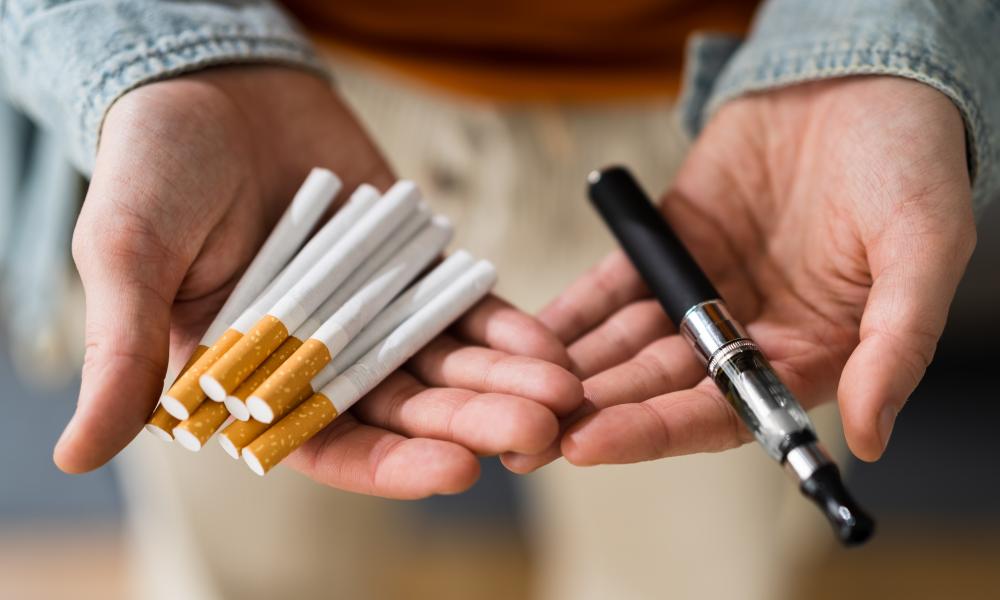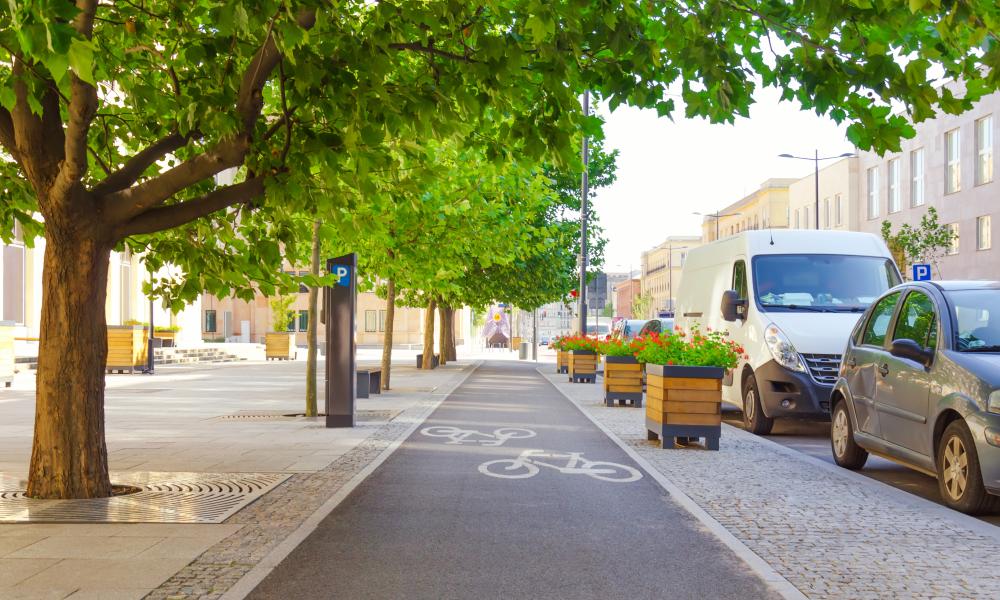
Professor Roger O’Sullivan, Director of Ageing Research & Development at IPH, talks about loneliness as a key public health issue.
“Public health and social measures introduced during the COVID-19 pandemic have brought profound changes to everyday life…. many more people have gained personal insight into what it means to be socially isolated, lonely, or both. In addition to changing the nature of social connections, the pandemic has also potentially changed perceptions of loneliness and social isolation, and challenged the stereotypical view of the lonely or isolated. There is now a potential opportunity to build on the greater empathy, compassion, caring, and concern shown towards those experiencing loneliness and social isolation, and to set in place policies and structures to address root causes and to support healthy choices”.
(O’Sullivan, et al 2021)
How loneliness can be addressed
Loneliness has emerged as a key public health issue for society during COVID-19 and there is much to be done to help understand the very personal nature of loneliness and how to tackle its root causes.
During the COVID-19 pandemic governments correctly focused on reducing transmission rates of the disease. However, we now need to address its wider social impacts.
Too often our understanding and approaches to loneliness are stereotypical. For example, some people with lots of friends can still feel lonely and those who live alone may not. During the pandemic, evidence from Ireland indicates that young people experienced much higher levels of loneliness than older people. For example, in November 2020, one in four aged 18-34 said they felt lonely all or most of the time compared to one in 20 of those aged 70+. (CSO 2020)

It is important to seriously consider associations with depression and anxiety, non-communicable diseases, health behaviours (e.g. smoking), stress, sleep, cognition, frailty and premature mortality. Paradoxically, there is a concern that chronic loneliness can affect one’s ability to connect positively with others (Prohaska et al 2020). A recent Lancet article underscores the association of loneliness and social isolation with poor physical health outcomes. It moves beyond the view that frailty is associated with loneliness and social isolation, and argues that both loneliness and social isolation actually increase the risk of developing frailty.
The terms loneliness and social isolation are often used interchangeably, yet they are distinct. Loneliness is a subjective negative experience resulting from inadequate, meaningful social or emotional connections – a discrepancy between an individual’s preferred and actual experience. Not everyone who is lonely is socially isolated and not everyone who is socially isolated is lonely. Furthermore, as there are varying types (and frequencies) of loneliness as well as different causes, different actions are required. Learning in the field indicates that:
“Overall interventions must be tailored and matched to specific root causes of loneliness in the individual, supporting personalised solutions ….While inevitably more complex to implement and evaluate, current evidence indicates that this tailored approach is a necessity”. Prohaska et al (2020)
In a public health approach, greater emphasis is required for primary prevention and for population-based strategies, in order to promote better social health and to recognize the social and economic factors that increase loneliness risk, as well as how we can best support connections within the community and society as a whole.
If you want to understand more about loneliness please click here.
Steps to looking after your mental health
Loneliness is a very personal experience. It is important to understand the causes and triggers for your loneliness.
Here are some steps that may help:
- Connect with others – spend time building and developing your connections, reach out.
- Be active –walk, cycle, garden –find something you enjoy and that works for you.
- Take notice – take notice of how you are feeling and your environment – when you feel lonely -listen and take action.
- Keep learning – try something new: learn a language, learn to paint, learn to dance.
- Give – do something nice for others e.g. volunteer – it may help you and may help others more.
References
CSO (2020). Social Impact of COVID-19 Survey November 2020. Well-being and Lifestyle under Level 5 Restrictions. Published 30th November 2020.
O’Sullivan R, Lawlor B, Burns A, Leavey G. Will the pandemic reframe loneliness and social isolation? The Lancet Healthy Longevity, Vol 2, 2021
Prohaska T, Burholt V, Burns A, Golden J, Hawkley L, Lawlor B, Leavey G, Lubben J, O’Sullivan R, Perissinotto C, van Tilburg T. Tully M and Victor C. Fried LP. Consensus statement: loneliness in older adults, the 21st century social determinant of health?. BMJ open. 2020 Aug 1;10(8):e034967.


